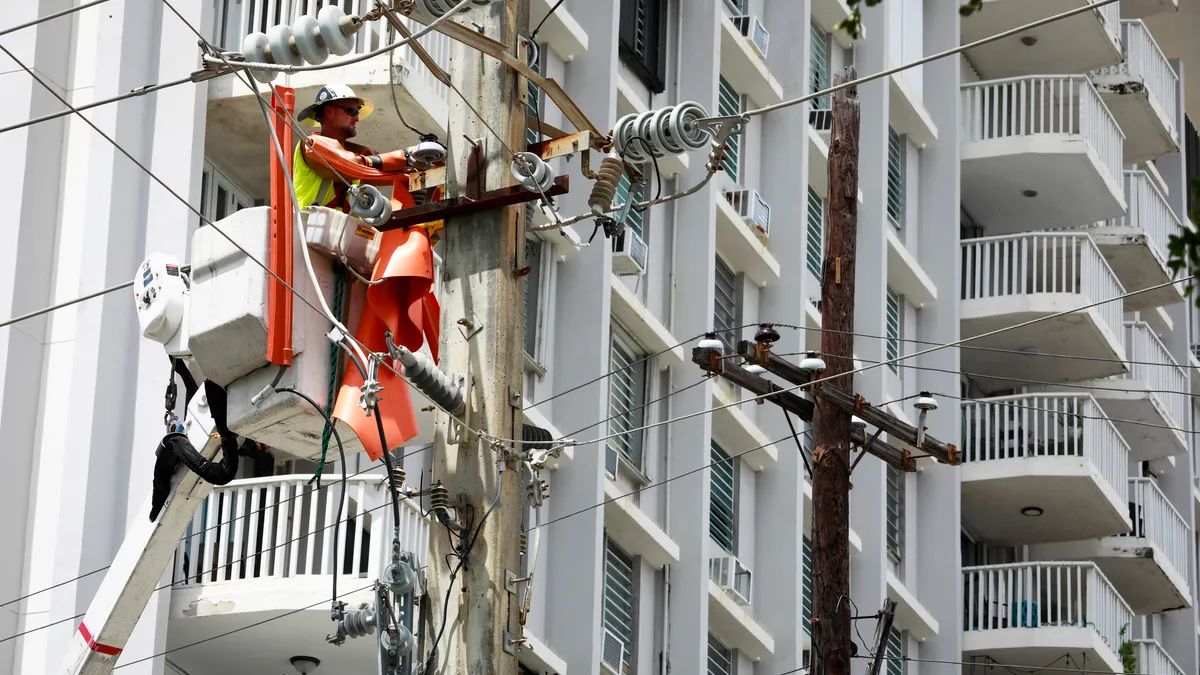A group of eight solar companies and nonprofits will receive up to $440 million in funding to install rooftop solar and battery systems for vulnerable households in Puerto Rico, the Department of Energy announced last week.
Eligible households include “very low-income, single-family households” that are either located in areas with a high percentage of very low-income households and face frequent power outages, or households with a resident who has an energy-dependent disability need, like the use of an at-home dialysis machine.
This money is the first tranche of funding released from the Puerto Rico Energy Resilience Fund, or PR-ERF, which was launched in February by DOE’s Grid Deployment Office to increase Puerto Rico’s grid resilience after multiple natural disasters.
The funding will help lower energy costs for between 30,000 and 40,000 households, in addition to improving resilience, the DOE said in a release.
Three companies — Generac Power Systems, Sunnova and Sunrun — along with five nonprofits and cooperatives — Barrio Eléctrico, Comunidad Solar Toro Negro, the Environmental Defense Fund, Let's Share the Sun Foundation and Solar United Neighbors — have been selected to enter award negotiations.
The three companies will receive funding from a total pool of $400 million to deploy residential solar and battery systems for vulnerable households in Puerto Rico. The nonprofits and cooperatives are eligible to split $40 million in funding for residential solar installations.
Sunnova has an existing commitment to Puerto Rico — in September, DOE’s Loan Programs Office finalized a $3 billion partial loan guarantee with the company that will allow it to provide loans to between 75,000 and 115,000 homeowners there for rooftop solar installations, residential battery systems and smart software.
“Before the end of 2023, DOE will also announce selectees for the PR-ERF's $3.85 million Solar Ambassador Prize as well as the remaining $10 million under the PR-ERF Funding Opportunity Announcement, which will support outreach, education, training, and consumer protection for qualified households,” the department said.















